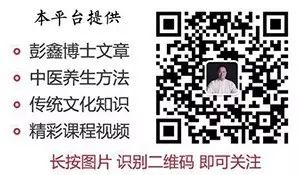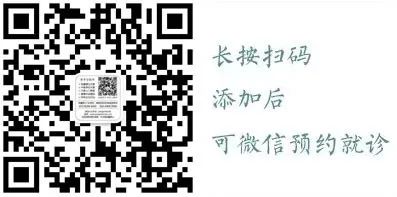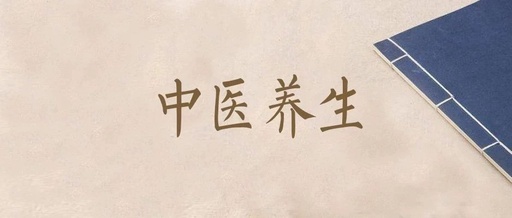
【This article is part of: Dr. Peng’s Lecture Series on the “Huangdi Neijing” (Includes Audio) – Essence Edition – One Hundred and Ten. (More exciting content is continuously updated…)】
“In spring, it is good for treating nasal bleeding; in mid-summer, it is good for treating chest and rib pain; in late summer, it is good for treating diarrhea due to cold in the middle; in autumn, it is good for treating wind and malaria; in winter, it is good for treating numbness and convulsions. — “Huangdi Neijing: Jin Kui Zhen Yan Lun”
(Continuing from the previous text) “In mid-summer, it is good for treating chest and rib pain.” Mid-summer refers to the summer season, where the disease manifests in the heart, with the corresponding points in the chest and ribs. Previously, we discussed that during summer, the disease affects the organs, mainly referring to the heart. In summer, the corresponding organ is the heart, so its manifestations are in the chest and rib area, where pain and discomfort occur. People with heart issues primarily experience three symptoms: chest tightness, shortness of breath, and palpitations. Initially, it may just be chest tightness, shortness of breath, and palpitations, but as it progresses, pain may develop in the heart area, which modern medicine describes as precordial pain. Some patients may experience radiating pain to the back and shoulder blades, while others describe pain in the ribs under the armpit, which are all manifestations of heart issues. Some may inaccurately describe it as stomach pain; many do not understand what stomach pain means. Stomach pain is a colloquial term in the north, referring to the area below the sternum, known as the “heart pit”. Pain in this area is called stomach pain. (Please follow WeChat: pengxinboshi)In fact, it is not stomach pain; it is crucial to conduct differential diagnosis. When practicing medicine, one must be meticulous and careful. When a patient says they have stomach pain, many are misled. Sometimes clinical doctors can easily be misled by a single phrase. Therefore, during our medical training, teachers repeatedly emphasized the importance of understanding the patient’s main complaint and what they are describing, and to clarify what they actually mean, rather than taking their words at face value. Sometimes, the colloquial or regional terms used by patients do not align with our actual symptom descriptions. For example, stomach pain actually refers to pain in the precordial area, not stomach pain. If you treat it as stomach pain, it could lead to complications; it should be treated as a heart issue. So, what I just mentioned is a manifestation of disease in the chest and ribs, which are all signs of heart disease. I previously mentioned that the early symptoms of heart disease are chest tightness, shortness of breath, and palpitations, and as it progresses, pain may occur. For instance, pain in the left precordial area may radiate to the back, then to the armpit, and some may feel pain radiating to the arms. Some describe it as stomach pain, which is actually pain in the heart pit area. This all falls under chest and rib pain, which are manifestations of the heart; this is the second stage. The third stage could be myocardial infarction. (Please follow WeChat: pengxinboshi) Commonly referred to as myocardial infarction, this condition presents with a feeling of impending death, which is very serious. Those who have experienced a myocardial infarction will never forget that feeling, which is a sensation of nearing death, only occurring in heart disease. Kidney disease, liver disease, and lung disease do not present with a feeling of impending death when they flare up; only one organ, the heart, can cause this sensation. Therefore, ancient Chinese scholars recognized this point: heart issues are critical, and once symptoms of myocardial infarction appear, the patient feels as if they are about to die. Thus, in TCM, it is said that the heart houses the spirit, indicating a connection between the heart and the spirit. (Please follow WeChat: pengxinboshi)This is quite fascinating. We know that, according to modern medicine, the activities of the spirit are primarily associated with the nervous system, which is mainly located in the brain, not in the heart. The heart is part of the circulatory system, which is different from the nervous system. However, the issue arises that the patient’s self-perception and main complaints often include a feeling of impending death. This point will be shared in detail later, discussing the differences and connections between TCM’s understanding of life and modern science’s understanding of life. Although they may seem contradictory in some aspects, they are actually unified. I will have a dedicated lecture on this topic in the future. This is what we mean by “In mid-summer, it is good for treating chest and rib pain.” During summer, we sweat a lot. Many young people may not feel much, but those who are more susceptible to illness, especially the elderly, can quickly develop heart symptoms such as chest tightness, shortness of breath, and palpitations. Additionally, if they have several days of poor sleep, the precordial area will immediately start to hurt; these are all signs of heart disease. Therefore, in summer, it is essential to nourish Yang Qi. In spring and summer, we nourish Yang, while in autumn and winter, we nourish Yin. In spring and summer, we must take good care of our Yang Qi, which is primarily about nourishing the heart. In spring, we nourish the liver, and in summer, we nourish the heart, ensuring we do not sweat excessively and maintain our heart Qi and original Qi; this is the method of health preservation in summer. “In late summer, it is good for treating diarrhea due to cold in the middle.” Many people do not understand what late summer means. I have previously explained that late summer refers to the transitional period between summer and autumn, roughly similar to the dog days of summer. This period corresponds to the middle jiao, specifically the spleen and stomach. If the spleen and stomach Qi is deficient, it leads to “diarrhea due to cold in the middle.” “Diarrhea” has been discussed before; it emphasizes that food does not digest properly, and diarrhea is particularly urgent, referred to as “diarrhea.” “Cold in the middle” means that cold Qi is present in the middle jiao, which corresponds to the syndrome of spleen and stomach Yang deficiency. Zhang Zhichong commented: “The spleen is the ultimate Yin among Yin, unable to transform heat, thus resulting in cold in the middle.” The spleen is the ultimate Yin organ. Among the six meridians, the Taiyin meridian is the spleen meridian. When the spleen meridian is cold, it becomes difficult to warm it up. Therefore, we see many patients with chronic stomach cold; this group of patients is often referred to as chronic stomach disease, or chronic stomach cold disease. This type of patient requires long-term treatment to recover. For instance, Zhang Jingyue in the “Jingyue Quanshu” treated patients for three to four years, using several kilograms of ginseng to gradually restore the spleen and stomach. This illustrates that chronic stomach disease is difficult to treat. Why is it difficult to treat? Because the spleen is the ultimate Yin, warming it up is extremely challenging, akin to a complete transformation of the organ system. This places high demands on both the doctor and the patient. The doctor must use precise herbs and accurate differentiation, while the patient must cooperate well with the treatment, ensuring that during this period, they do not overexert themselves, consume cold foods or drinks, or expose themselves to wind, thus maintaining their Yang Qi. This feeling is akin to carefully protecting a small flame; you must shield it from the wind to allow it to grow. (Please follow WeChat: pengxinboshi)Many people disappoint me; some patients, after receiving the right medication, respond well initially. However, just like protecting a small flame, after igniting it, they go out for seven days, staying up late and traveling by plane, and upon returning, their symptoms worsen, and indicators reappear. After painstakingly treating them, they cannot withstand a week of turmoil and relapse. Some may ask, will it always be like this? Actually, it is not. Once treated and symptoms disappear, it is essential to nourish the body, ensuring it does not become fatigued and is well cared for, just like protecting that small flame until it grows larger and brighter. Only then can you gradually release your protection; a gust of wind will not easily extinguish it. Initially, it requires careful nurturing. This is why many patients experience relapses after treatment; they lack a nurturing process. (Please follow WeChat: pengxinboshi)During the nurturing process, the physician’s role is to consolidate treatment, meaning that during this time, medication may not be taken daily, perhaps every two or three days, but the most important thing is to nourish the body, avoiding late nights, fatigue, and excessive talking. I have outlined “eight regulations,” totaling eight points, especially regarding sexual activity, which should not be too frequent, and avoiding late-night phone use, etc. I have specified these details. Anyone who follows my health preservation methods will improve; some young people recover quickly, while middle-aged and elderly patients also show significant improvement after a period of treatment. If you cooperate and pay attention to nurturing your body, recovery will be easier. This is the meaning of “cold in the middle,” referring to the syndrome of spleen and stomach Yang deficiency, with cold Qi present in the middle jiao. Therefore, late summer corresponds to the spleen, which is the ultimate Yin organ; once it suffers from cold disease, it is challenging to recover, hence “In late summer, it is good for treating diarrhea due to cold in the middle.”(To be continued)
This article is part of: Dr. Peng’s Lecture Series on the “Huangdi Neijing” (Includes Audio) – Essence Edition – One Hundred and Ten. (More exciting content is continuously updated…)
Disclaimer: This article is a health knowledge sharing. The medications, formulas, acupuncture, and various treatment and health preservation methods mentioned should be applied under the guidance of a professional physician. Do not self-administer. We are not responsible for any issues arising from improper use.Copyright Notice: This article is authored by Peng Xin, this is an original article, and reproduction or citation without permission is prohibited.
(Copyright belongs to the original author, and all legal rights are reserved)Recommended Reading
Follow the “Dr. Peng Xin TCM Studio” Public WeChat Account, reply with the number 2020 to view popular reading collections.
[Includes Audio] Dr. Peng Xin explains the “Moxibustion Health Preservation” series of courses
[Includes Audio] Dr. Peng Xin discusses “Health Preservation in the Twenty-Four Solar Terms”
[Includes Audio] Dr. Peng Xin presents the essence of the “Huangdi Neijing” series
[State Council Information Office] Dr. Peng Xin: The ultimate point of integration between Chinese and Western medicine lies in clinical practice
[Tsinghua University] Dr. Peng Xin’s public lecture – Modern Insights from Pengzu’s Health Preservation Philosophy
[Baduanjin Complete Collection] Health Preservation Techniques – Dr. Peng Xin offers you a gift
One important cause of obesity (includes solutions)
“Winter Solstice” marks the birth of Yang; the correct health preservation method is as follows
[Video] Vortex Gathering Energy: Ascending Clarity and Descending Turbidity Method
[Health Preservation] Two Blood Nourishing Formulas Suitable for Women
[Exciting Recommendations] Since vegetarianism is so good, why is your body still so poor?
Dr. Peng Xin TCM Studio
WeChat Public Platform: pengxinboshi

Official Website: www.pengxinboshi.com
Sina Weibo: @Dr. Peng Xin TCM
Tencent Weibo: @Dr. Peng Xin TCM
Dr. Peng Xin Appointment for Consultation, Health Advice and Lecture Invitation:
Method 1: Call to make an appointment
010-83069166
010-83069366
Method 2: Add WeChat to make an appointment
WeChat ID: pbsyy011
Or scan the QR code below.


